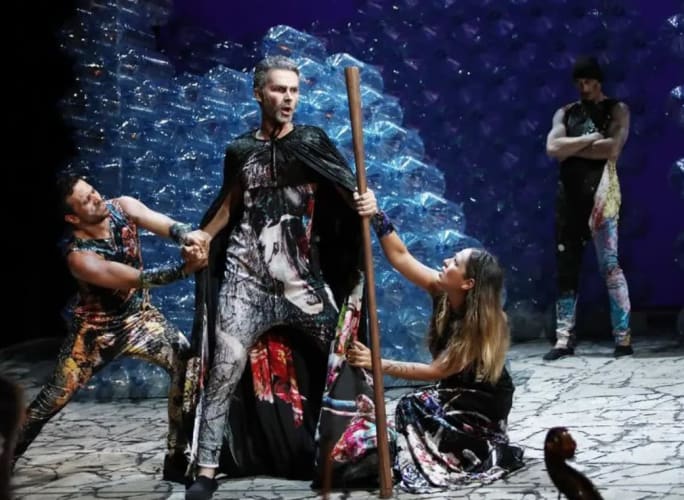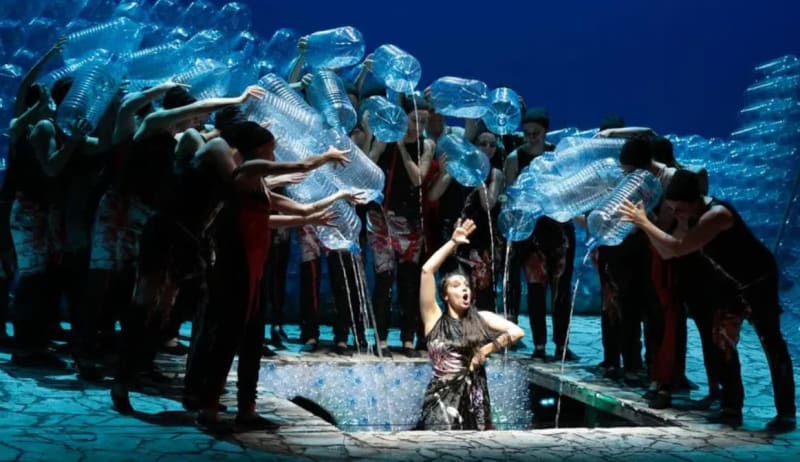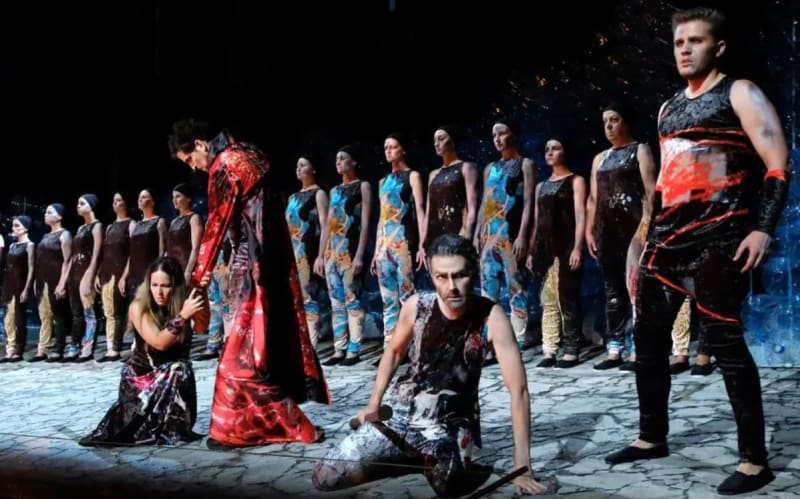When Rossini was commissioned to provide an opera in French for the Paris Opera, he was already busy as director of another opera house in the city, so he decided to adapt his earlier work, Maometto II.
News of Lord Byron’s death in Missolonghi vainly resisting its overrun by the Turks was all over the newspapers at the time, and the public mood was firmly on the side of the Greeks. The composer accordingly changed the setting from the sultan’s war against Venice of 1470 to an earlier episode in his campaigns, the siege of Corinth in 1459, about which the poet had written an epic poem of that name. Pro-Greek, anti-Turkish sentiment helped ensure Rossini’s reworked opera was a triumph—the composer applauded for half an hour, and the work soon achieving 100 performances.
The story is simple: Corinthian leader Cleomene has promised his daughter Pamyra to the soldier Neocles, but she has fallen in love with a disguised traveller who turns out to be none other than their enemy, Mahomet II. She pretends to go along with marriage to the sultan in order to win a reprieve for her people, but when this plan fails and the city is sacked, she kills herself.
Presenting a work about Islamic expansionism might, however, be regarded as problematic these days. For this production at the 2017 Rossini festival in Pesaro, director Carlus Padrissa projects the work into a dystopian future of environmental disaster, in which scarce water has become an object of veneration.
The natural world has died, so in an arid landscape, designer Lita Cabellut clothes everyone in what appear to be one-piece bathing suits made from recycled plastic. Even the flowers are synthetic, and what architecture remains consists of piled-up empty water containers.
It’s an interesting concept, linking this doomed society and C15th Corinth, but there are some questionable aspects of the production. Pamyra sings the air "O patrie infortune" while eight pairs of legs wave from under the stage like seaweed strands or synchronised swimmers not coming up for air. The effect is unintentionally comical. And for half the 16-minute dance sequence in act 2, lines from Byron flash across a large video screen with bewildering rapidity leaving Mahomet and Pamyra alone on stage with nothing to do. If they were children, Padrissa might be justifiably charged with neglect.
There is nevertheless much to enjoy in this rare, late work, seen as a forerunner of French grand opera, with typical Rossinian touches, short repeated phrases, sometimes ornamented, building to climaxes, backed by a stirring chorus. Highlights include a hymn for the latter, "Divid prophete", sung over a double-harp bass continuo.
Singers are all of high quality, but among them, one is exceptional. 2017 seems to have been a breakthrough year for Sergey Romanovsky, having already earned rave reviews for his Alfredo in Royal Opera’s La Traviata, and here he is magnificent as Neocles, a role that, thank goodness, Rossini changed from contralto in Maometto II to tenor, travesty roles being less acceptable to Parisians than they were back home.
His is not a particularly powerful voice, but it has that special warm burr, a sweet, distinctive sound that ascends smoothly to a brilliant top. Rossini disobligingly provides no pause after his third act air "Grand Dieu", the most fluent number in the score, so the audience save their enthusiastic bravos to the curtain call.
Nino Machaidze is a sympathetic Pamyra, and her relationship with Mahomet II—a kind-hearted sort of chap as bloody tyrants go—is complex and convincing. Luca Pisaroni, best known for his roles as Don Giovanni or Leporella and not particularly associated with the bel canto repertoire, brings an agility and richness to the role of Mahomet II. John Irvin is a vocally agile but somewhat undemonstrative Cleomene.
Video reproduction across the huge stage of the outdoor Adriatic Arena is excellent, as is the sound balance, with Roberto Abbado sensitively conducting the stage-level orchestra with one arm in a sling after injury.



